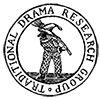The basis for this section is a collection of texts - some full, some fragmentary - for about 220 British and Irish folk plays. This set of texts was first compiled and put online in the late 1990s by Peter Millington as a database for his PhD research. Although his initial purpose was very particular the collection provides an excellent general starting point for appreciating variation and similarity between texts from different times and places. As the collection expands additional texts will be added to give a sense of the continuing development of the form. Millington, meanwhile, has continued to explore and analyse these and other texts, and his updated findings are available at his website http://www.mastermummers.org/. See particularly the 'Folk Play Scripts' and the 'Folk Play Atlas' sections.
The texts are here arranged by Country and by County as well as chronologically but a note of caution is still required: the matter of dating these texts and textual fragments is not always straightforward. We may have the date when a piece of writing was published but lack clarity of date for the material it describes. We may have a claimed date for a performance or reminiscence of a performance, but be unclear when the reminiscence was committed to paper or print. We may have a fascinating description of something yet remain uncertain about the subject. The numerous dialect terms for mumming, the changing meaning of words over time, the range of similar activities both with and without a play, all contribute to a fascinating and complex picture.
While the emphasis of this section is clearly on play texts we have included examples of contextual information about performances, or memories of performances, that contain only fragments of text. Before the 1960s contextual information is scant and all too often we don’t know much about the circumstances of this or that performance, or the identities, attitudes and understandings of the participants. Much of the writing gives little if any sense of agency for those involved. From the 1960s onwards folklorists have become much better at addressing and understanding matters of context. This forms a critical part of our record of performance. As this section develops, and as more people start to write about historical and contemporary contexts for performance, and as more historical sources are discovered and contemporary sources documented, these contextual notes will support our understanding.
